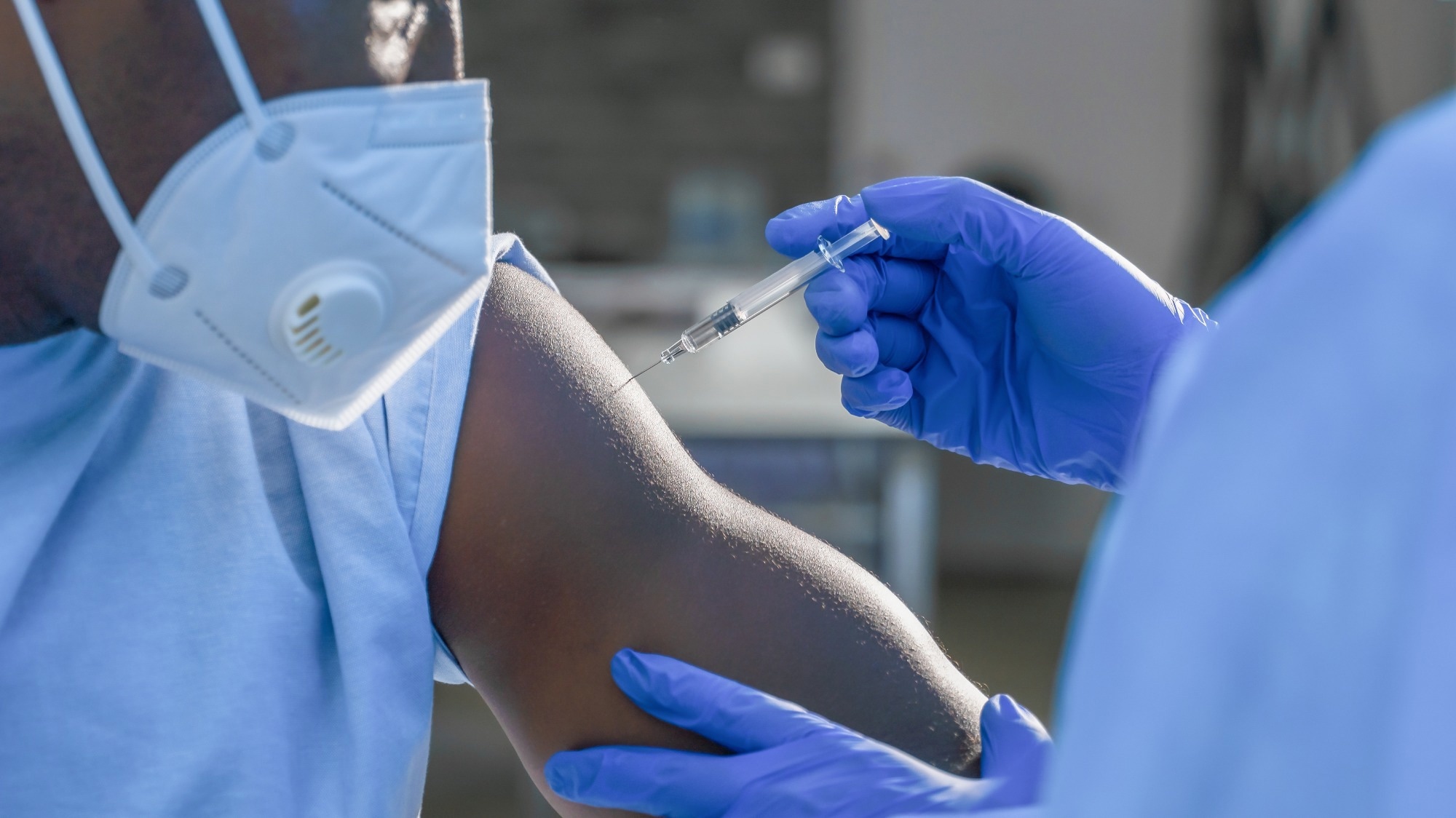In a recent study published in the MMWR and Morbidity and Mortality Weekly Report, researchers retrospectively analyzed two cohorts among Medicare enrollees to estimate the vaccine effectiveness (VE) of bivalent mRNA (short for messenger ribonucleic acid) COVID-19 (short for coronavirus disease 2019) vaccines in preventing COVID-19-related thromboembolic events, as compared to original monovalent vaccines. They found that compared to the monovalent dose, the effectiveness of the bivalent COVID-19 vaccine dose against thromboembolic events was 47% in Medicare enrollees aged ≥65 years and 51% in adults aged ≥18 years with end-stage renal disease (ESRD) receiving dialysis.
 Study: Effectiveness of Bivalent mRNA COVID-19 Vaccines in Preventing COVID-19–Related Thromboembolic Events Among Medicare Enrollees Aged ≥65 Years and Those with End Stage Renal Disease — United States, September 2022–March 2023. Mongkolchon Akesin / Shutterstock
Study: Effectiveness of Bivalent mRNA COVID-19 Vaccines in Preventing COVID-19–Related Thromboembolic Events Among Medicare Enrollees Aged ≥65 Years and Those with End Stage Renal Disease — United States, September 2022–March 2023. Mongkolchon Akesin / Shutterstock
Background
Complications arising from COVID-19 include an elevated risk of thromboembolic events, particularly among individuals aged ≥65 years and those with ESRD receiving dialysis. Although COVID-19 vaccination has demonstrated protective effects against severe outcomes as well as lower rates of COVID–19–related thromboembolic events in vaccinated individuals, there is a lack of comprehensive estimates of VE specifically against these events. To address this gap, researchers in the present study evaluated the comparative effectiveness of bivalent COVID-19 mRNA vaccines in preventing COVID-19-related thromboembolic events when compared to original monovalent vaccines alone. The study focused on elderly Medicare beneficiaries and adults with ESRD who underwent dialysis. The aim was to gain insights into VE, stratified by time since dose, against COVID-19–related thromboembolic complications in these populations.
About the study
The present study included two retrospective cohort analyses, targeting Medicare beneficiaries aged ≥65 years (n = 5,683,208) and those aged ≥18 years with ESRD undergoing dialysis (n = 23,229). About 69% of ESRD patients were above 65 years, and 53% of them belonged to the non-Hispanic White community. Using Medicare parts A and B and claim records, comprehensive data were obtained on eligibility, covariates, COVID-19 vaccination status, and outcomes. Eligible beneficiaries received the bivalent COVID-19 mRNA vaccine, and cohorts were initiated on September 4, 2022. Daily updates on vaccination status commenced seven days post-bivalent vaccine dose, with follow-up continuing until study conclusion (March 4, 2023), censoring events, or COVID-19–related thromboembolic incidents. Utilizing a marginal structural Cox model, the analysis estimated relative vaccine effectiveness, offering insights into the incremental benefits of bivalent doses versus original monovalent vaccine doses. Statistical significance was determined by two-sided 95% confidence intervals, with nonoverlapping intervals indicating significant differences in effectiveness estimates.
Results and discussion
A higher proportion of bivalent vaccine recipients were found to reside in urban areas and had received an influenza vaccine in 2021–22 and 2022–23 as well as a dose of the original monovalent COVID-19 booster vaccine.
COVID-19-related thromboembolic events were observed in 22,001 participants of age ≥65 years and 1,040 participants of age ≥18 years with ESRD receiving dialysis, during the study. Among Medicare beneficiaries aged ≥65 years receiving a monovalent vaccine dose alone, 17,746 thromboembolic events related to COVID-19 were observed. In contrast, 4,255 thromboembolic events related to COVID-19 were reported in those receiving a bivalent vaccine dose. Thus, adjusted VE in this cohort was found to be 47%. Notably, VE estimates during 7–59 days after receiving the bivalent vaccine were higher (54%) compared with VE estimates after ≥60 days (42%).
On the other hand, 917 COVID-19-related thromboembolic events were observed in the cohort of individuals aged ≥18 years with ESRD receiving dialysis who only received the monovalent vaccine dose. However, only 123 thromboembolic events were observed in those receiving a bivalent vaccine dose. Thus, the adjusted VE in this group was found to be 51%. As seen in the ≥65 years cohort, VE estimates during 7–59 days after receiving the bivalent vaccine were higher (56%) compared with VE estimates after ≥60 days (45%). However, no statistically significant difference was observed. Participants with additional immunocompromising conditions also showed similar results.
The results indicate the additional advantage of a recent bivalent dose over previous receipt of original monovalent doses and align with the reported lower incidence of COVID-19–related thromboembolic events in vaccinated individuals compared to unvaccinated individuals. The study emphasizes the protective effect of bivalent COVID-19 vaccination against COVID-19-related thromboembolic events in these high-risk populations, offering insights for risk-benefit assessments. The researchers note that the protective effect of the bivalent vaccine dose wanes over time, but further research is warranted as the present study assessed only two periods since the last dose.
The study is limited by the under-ascertainment of COVID-19 vaccine receipt, lack of consideration of prior SARS-CoV-2 infection, the influence of the timing of policy implementation, potential residual confounding, and reliance on medical claims data. Additionally, the study's scope is confined to Medicare beneficiaries, limiting its generalizability to the entire United States population.
Conclusion
In summary, the study indicates that receiving all the recommended COVID-19 vaccine doses is crucial for individuals aged ≥65 years and adults with ESRD undergoing dialysis to mitigate the risk of thromboembolic events and other complications associated with COVID-19.